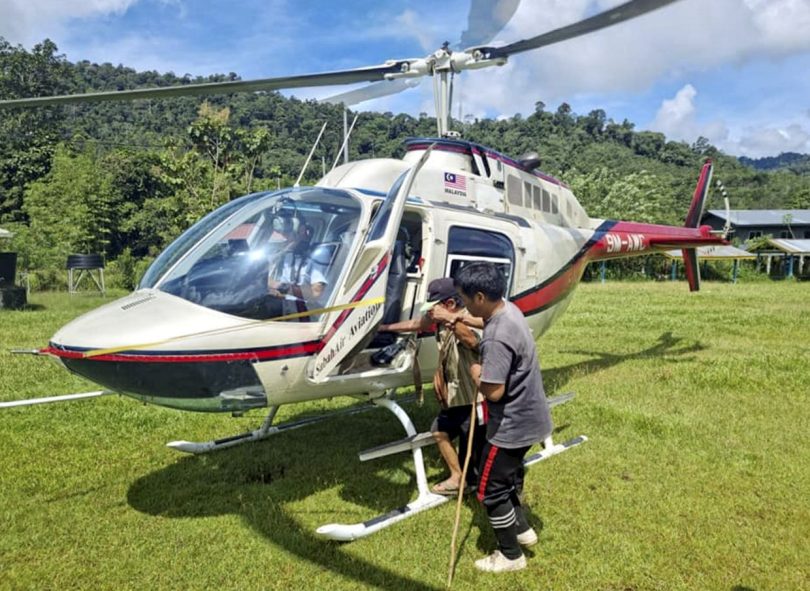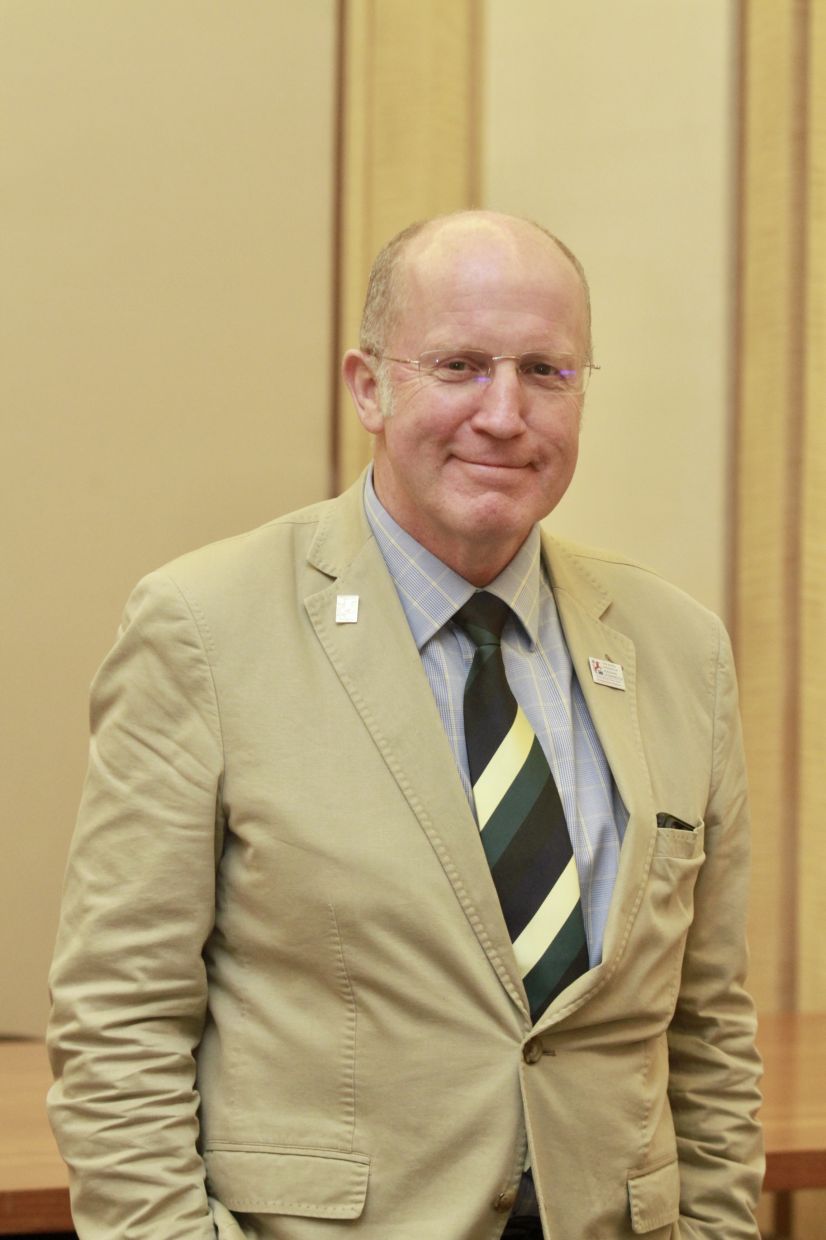[ad_1]
IT may come as a surprise to many but the rural regions of northern Scotland and the interior of Sabah have something in common. They are connected not only by the challenges of getting healthcare services to difficult-to-access areas but, recently, also by the experiences of one man: Prof Dr Andrew Kent, deputy chairman of the Faculty of Remote, Rural and Humanitarian Healthcare, Royal College of Surgeons Edinburgh.
In September 2022, Dr Kent became the second recipient of the Tuanku Muhriz Traveling Fellowship in Rural Surgery from the Royal College, giving him the opportunity to experience firsthand how Malaysia’s healthcare system operates in rural areas.
Like northern Scotland with its remote hilly areas, Sabah too faces tremendous challenges in delivering medical care to the interior, as the 58-year-old orthopaedic and trauma consultant surgeon discovered when he visited hospitals in the state in November 2022.
“I realised that the journey to a hospital looks fairly short on Google Maps but only until you actually get on the road. The team and I spent eight hours in the back of a four-wheel truck, bumping up and down all the way, to Semporna and, oh my word, it was it quite a challenge for my back!” he says in an interview after returning to Petaling Jaya in December 2022.
While his back may recover, Dr Kent notes that for trauma patients classified as emergency cases, these long, bumpy rides could exacerbate injuries.
“The best way to provide care for an acutely injured casualty is either to bring the surgeon as close to the patient as possible or to get the patient to the surgeon as quickly as possible.
“In military terms, that’s usually by air ambulance, or a helicopter. Now, I understand in the past there was a helicopter doctor service in Sabah, but for various reasons, probably mainly financial and political, that has become less now than it was.
“Perhaps that’s something that should be encouraged and developed again in the future.”
Besides that, he feels that Malaysia should also reexamine its healthcare provision model in Sabah and identify inequities.
Improve current services model
Dr Kent explains that, similarly to the system in northern Scotland where he works, Sabah delivers healthcare using a hub and spoke model.
This means there’s a main hub, in Sabah’s case the Queen Elizabeth Hospital in Kota Kinabalu, which receives the heaviest resource investments and supplies the most intensive medical services.
This hub is then complemented by “spokes” that offer more limited services at sites distributed across the state. Then those three or four spokes – general hospitals – are each, in turn, hubs with spokes of their own, ie smaller hospitals.
The general hospitals have specialists, surgeons and anaesthetists, and they provide basic emergency surgical care and obstetrics care while the peripheral hospitals tend to just do basic emergency treatment.
“So the minor stuff gets dealt with way out in the periphery, and then the more major stuff comes to the general hospitals, and then the very major stuff gets referred to the Queen Elizabeth Hospital.”
The problem begins when too many casualty cases end up in major hospitals, swamping them and, eventually, the Queen Elizabeth Hospital.
“A possible solution would be to create a level one trauma hospital that can be easily accessible by all, somewhere central, which will also support air ambulance services.
“But I understand that, just like the UK, Malaysia may have obstacles preventing this from happening,” he says.
Bipartisan exchanges
Another issue Scotland and Sabah have in common, according to Dr Kent, is the “super specialisation” of doctors, particularly surgeons. Medical practitioners quickly become, say, urologists or general surgeons, who also begin specialising and become say, orthopaedic surgeons, neurosurgeons, etc.
“But even within orthopaedics, which is my specialty, people very quickly subspecialise into categories such as a hand surgeon or a foot surgeon or a knee surgeon, which is great if you are working in a big city and you’ve got a private practice.
“But if you are working in a general hospital or you are working in the humanitarian sector, you don’t necessarily have the need for such surgeons.
“For example, I cannot take a hand surgeon out to Ukraine and put them in a field hospital because they’ll be dealing with a whole spectrum of cases,” he says.
Here’s another similarity between the UK and remote areas in Sabah, Sarawak and Peninsular Malaysia: “One of the challenges that we have in the National Health Service back home is the difficulty in recruiting and retaining not just doctors, but nurses, physiotherapists and other healthcare professionals,” Dr Kent says.
He says Scotland is currently looking at attracting graduates who have done science degrees or non-medical degrees by offering them a condensed course in medicine.
And after his Sabah trip, Dr Kent is mulling over Malaysia’s medical officer (MO) system.
“What we don’t have in the UK, which you have here in Malaysia, are the MOs, the medical assistants. I’ve been very, very impressed by the medical assistants, that they’re able to deliver anaesthesia, frontline medical care, even some basic surgical care.
“I’ve met some amazing medical officers who can do a huge range of surgery,” he says.
There have been talks between Malaysia’s humanitarian organisation Mercy Malaysia and the UK’s equivalent, UK Med, about addressing the issue of a lack of healthcare services for remote areas.
“What we are hoping to do is to form a bipartisan relationship between Mercy Malaysia and UK Med whereby we can send some of our medical workers to work with Mercy and vice versa.”
This exchange, according to Dr Kent, would be very rewarding for medical practitioners with both parties. While Malaysian doctors would benefit from UK Med’s deployment of surgical teams internationally, the UK side would benefit from working with Malaysia’s general surgeons.
“Having general surgeons who can do a bit of everything is rare, and as someone who’s seen the standards Malaysian surgeons have, I am very impressed.
“I’ve met some amazing surgeons who had the skill set to perform a craniectomy, to put chest drains in, to do an appendectomy or even to do orthopaedics. You would never find that in the UK these days,” he says.
A local connection
During our interview, we discover that this is not Dr Kent’s first time in Malaysia.
He was born in Kamunting, Perak, in 1964 and then spent time in Sungai Petani, Kedah, where his father was an English language teacher attached to the British Army teaching Gurkha recruits. While the family left Malaysia when the doctor was seven months old, he says he’s never lost a sense of a connection to this country.
The military ties continued too, as Dr Kent joined the army after medical school and served for 20 years on the frontlines in the first and the second Gulf Wars, Afghanistan, Bosnia and Northern Ireland, doing “a lot of trauma work in fairly austere environments”.
While he left the army when he had four young children, he never stopped wanting to put those hard-earned trauma skills to good use. Once his children had grown up, he was able to do so by working with UK Med as their surgical director and as a medical advisor for the Halo Trust, a mine clearance organisation.
Because of his experiences, Edinburg’s Royal College of Surgeons asked Dr Kent to bring humanitarian healthcare into his faculty.
“I see myself as like a little bit of a spider in a web with lots of different contacts and we are trying to pull all these contacts in to get them to work together.
“It’s not always easy but, overall, the college has been able to provide that overarching support for humanitarian deeds.
“While it has been busy, it has also been quite exciting and particularly rewarding both personally but also professionally,” says Dr Kent.
The Tuanku Muhriz Traveling Fellowship in Rural Surgery is awarded by the Royal College of Surgeons of Edinburgh in collaboration with Universiti Kebangsaan Malaysia and the Malaysian Health Ministry in line with its Global Surgery initiative. The inaugural recipient was Prof Dr Angus Watson, who visited Sarawak’s indigenous communities in 2019.
[ad_2]
Source link









